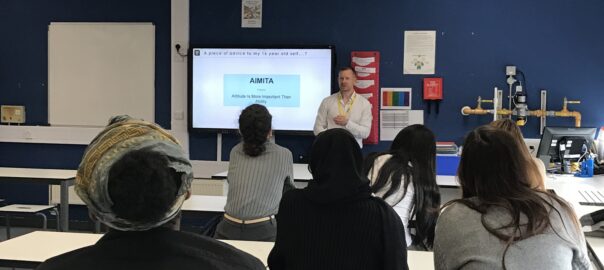“Identity in its most basic form means a sense of belonging”

Our colleague, Sietske van der Ploeg is Head of Portfolio Performance and Social Impact at the Mayors’ Fund. Here she reflects on a conference she spoke at last week about identity and what it means in relation to the world of work:
You may be familiar with research that demonstrates the long-term, scarring effects of unemployment on young people – being out of work at a young age may affect future pay, risk social exclusion and result in a diminished sense of optimism about life[1].
There is another, often underreported, element to youth unemployment.
Identity.
Identity in its most basic form means a sense of belonging. Being connected to your social relationships: family, carers, friends and your immediate community.
Last week, we were asked to present at the Working Identities Conference at Cumberland Lodge, a charity that empowers people, through dialogue and debate, to tackle the causes and effects of social division. The topic of the conference was ‘Working Identities’ and we explored how being out of work may affect identity.
In preparation, I interviewed a number of young people we had worked with previously through several of our programmes. Some were now in full-time employment, some were in full-time education, others were neither. All of them had experienced unemployment at some point in their life.
We talked about moving from teenagehood to adulthood, a time in life where very few things are set. A time that is defined by transition and choice. Simple things like your preferred style of clothing or your favourite music, to choosing friendships you establish, the type of career you’re aspiring to, or the kind of person you want to become.
When I asked them what the worst thing about being unemployed was, they all came up with similar answers about how they felt:
‘Embarrassed’…‘Invisible’…‘Failure’…‘Lonely’…‘Not fitting in’…‘Vulnerable’…‘Self-doubt’
No one spoke about the lack of work experience or the potential of reduced earnings later in life. The most fundamental impact mentioned was related to wellbeing, self-belief, and identity. And it is easy to see how work helps shape identity: the colleagues you connect to, the job title you hold, the money you earn.
Moving into adulthood and building a meaningful career is a hugely important phase in life. It is so much more than having relevant skills and qualifications. In a city of great potential and challenge, we need to support young people with options, networks, and opportunities. Only then can they explore their future and take informed decisions about who and what they want to become.
[1] https://www.eurofound.europa.eu/news/news-articles/the-scarring-effect-of-long-term-youth-unemployment



